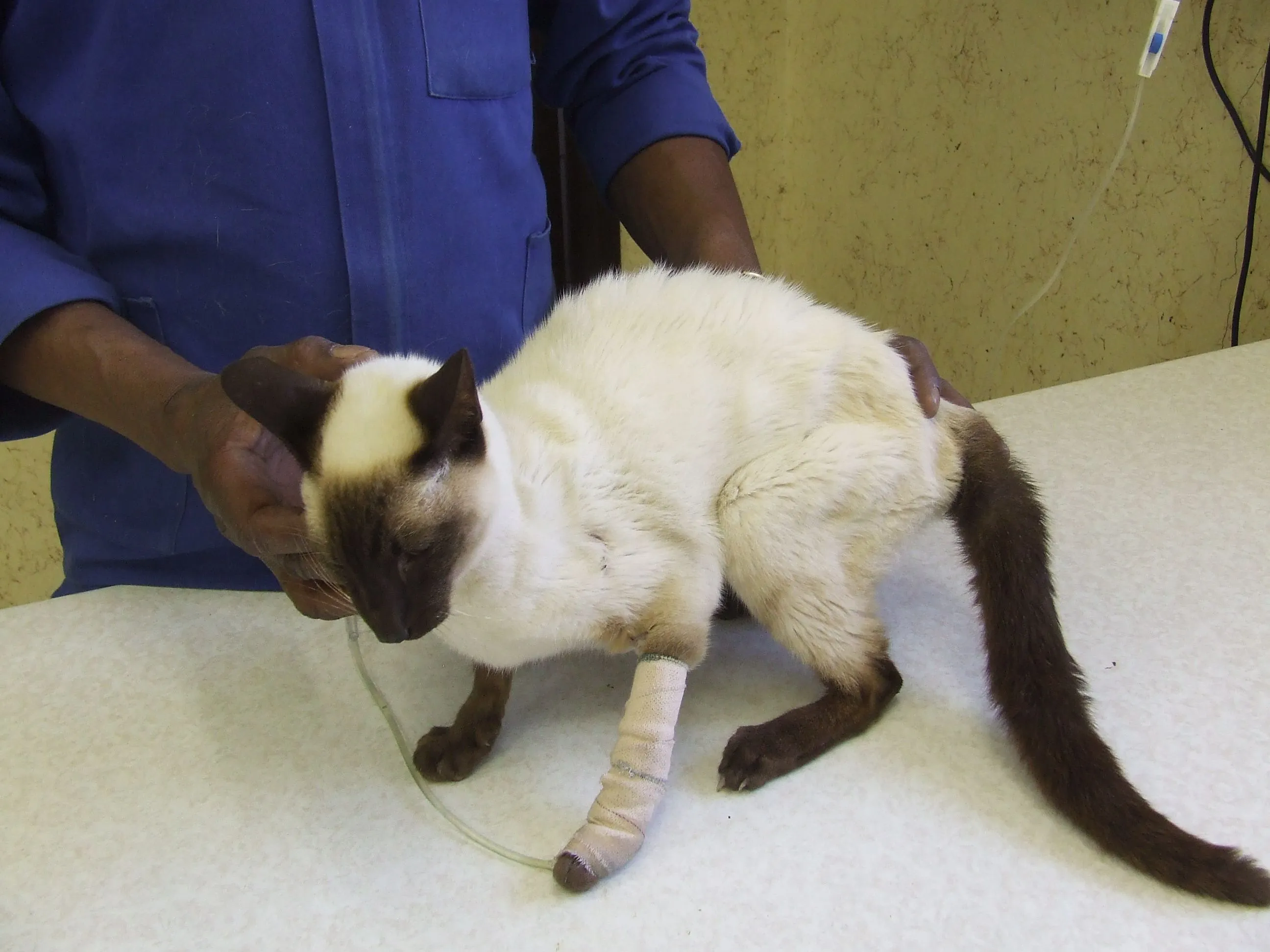Renal failure in cats refers to a condition characterized by complete or partial dysfunction of this paired organ. It leads to cessation of urine production or production of less urine. Such changes are fraught with intoxication of the body and water-salt and acid-base imbalance. According to the clinical course of the disease is divided into acute and chronic insufficiency.
The acute form of the pathology develops suddenly. It can proceed in different ways, the course always depends on the causes that caused it. Thus, the development of prerenal or prerenal pathology is associated with impaired blood flow in the kidneys themselves or with a sharp decrease in pressure caused by heat stroke, poisoning, dehydration, bleeding and heart failure.
Renal or renal form occurs against the background of renal tissue damage by a pathological process. It can also develop during sepsis, after snake bites, poisoning with drugs and toxins.
Postrenal stage, or postrenal stage appears as a result of compression/ blockage of the lumen of the urinary tract. Such changes can be provoked by malignant neoplasms or urolithiasis.

Symptoms of renal failure in cats
In the acute form, renal failure in cats is expressed by the following symptoms:
- general weakness;
- decreased body temperature;
- pallor of mucous membranes;
- swelling;
- worsening of appetite;
- vomiting;
- decreased quantity of urine;
- smell of urine from the animal’s mouth;
- diarrhea;
- increased pulse rate;
- dehydration.
Early recognition of chronic renal failure can be seen in increased thirst, profuse urine production, diarrhea, apathy, mouth sores on the mucous membranes, lack of appetite. The coat loses its shine and rolls up. As the disease progresses, tremors in the limbs and cramps appear. The pet may go into a coma or lethargic sleep.
How renal failure is diagnosed and treated
Given the non-specificity of the symptomatology of renal failure, it must be differentiated from other abnormalities. To accurately diagnose it, the veterinarian suggests urine and blood tests and an ultrasound examination of the pet. Renal failure is judged by an increase in creatinine and urea - they are shown by a biochemical blood test. The response of the general analysis traces a decrease in the level of lymphocytes, hemoglobin, platelets with an increased level of leukocytes. Acidic pH, protein, and decreased relative density are detected in the urine.
It is impossible to rid a cat of chronic renal failure. The owner can only maintain the condition of the pet, preventing the progression of the disease. The main principles of treatment of the pet are diet and administration of medication solutions.
Food is chosen for the pet in the form of food with low phosphorus and protein content. If this is not possible, the food should be reduced in quantity. Solutions that regulate metabolism are administered intravenously.